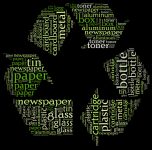How to Use the TRI P2 Search Tool
Who Has to File a TRI Report? Facilities in different industry sectors, facilities in Indian country, and federal facilities must annually report how much of each toxic chemical they managed through recycling, energy recovery, treatment, and environmental releases. Either a facility’s owner or operator may file the TRI report, but both will be held responsible […]










